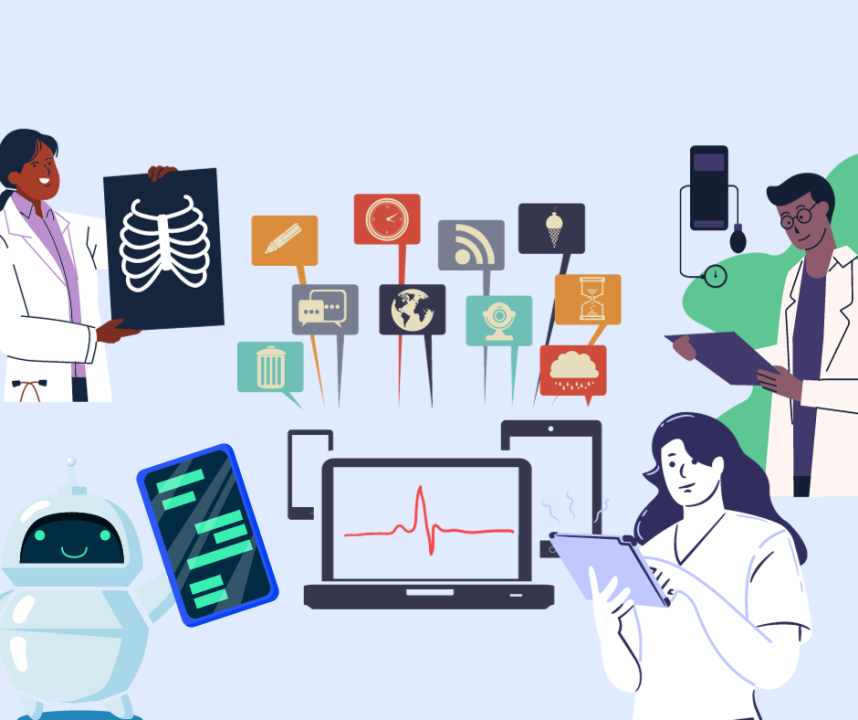Home care nursing has evolved significantly with the integration of technology, transforming the way care is delivered to patients in their homes. Technological advancements have made it possible to provide more efficient, accurate, and personalised care, enhancing the quality of life for patients and improving outcomes. In this blog, we will explore the various ways technology is revolutionising home care nursing, highlighting the benefits and innovations that are shaping the future of this vital healthcare sector.

Telehealth and Remote Monitoring
Telehealth and remote monitoring technologies have become essential tools in home care nursing. These innovations allow nurses to monitor patients’ health remotely, reducing the need for frequent in-person visits and enabling timely interventions.
- Telehealth Consultations: Telehealth platforms enable home care nurses to conduct virtual consultations with patients, providing medical advice, assessing symptoms, and offering guidance on managing health conditions. This is especially beneficial for patients with mobility issues or those living in remote areas.
- Remote Monitoring Devices: Wearable devices and home monitoring systems allow nurses to track patients’ vital signs, such as heart rate, blood pressure, and glucose levels, in real-time. These devices send alerts if readings fall outside of normal ranges, enabling immediate action if necessary.
Benefits of Telehealth and Remote Monitoring
- Convenience: Patients can receive care without leaving their homes, reducing the risk of exposure to illnesses and saving time and resources.
- Timely Interventions: Early detection of potential health issues through remote monitoring can prevent complications and reduce hospital admissions.
- Improved Patient Engagement: Patients become more involved in their care management, as they can track their health data and communicate easily with their healthcare providers.
Electronic Health Records (EHRs)
Electronic Health Records (EHRs) have revolutionised the way medical information is stored and accessed. In home care nursing, EHRs play a crucial role in ensuring continuity and coordination of care.
- Comprehensive Patient Records: EHRs provide a complete and up-to-date record of a patient’s medical history, treatments, and medications. This information is readily accessible to all healthcare providers involved in the patient’s care, ensuring consistent and informed decision-making.
- Care Coordination: EHRs facilitate communication and collaboration among healthcare providers, including doctors, nurses, and specialists. This is particularly important in home care settings, where multiple professionals may be involved in a patient’s care plan.
Advantages of EHRs in Home Care Nursing
- Accuracy and Efficiency: EHRs reduce the likelihood of errors in patient records, ensuring accurate and efficient care delivery.
- Streamlined Documentation: Home care nurses can quickly and efficiently document care activities, allowing more time for direct patient care.
- Enhanced Data Security: EHRs offer secure storage of sensitive patient information, protecting it from unauthorized access.
Mobile Health (mHealth) Apps
Mobile health apps have become valuable tools for both patients and home care nurses. These apps can provide education, track health metrics, and facilitate communication between patients and caregivers.
- Medication Management Apps: These apps help patients manage their medications by providing reminders for doses, tracking medication adherence, and offering information on potential side effects.
- Health Monitoring Apps: Patients can use apps to log symptoms, track their diet and exercise, and monitor chronic conditions. This data can be shared with home care nurses to provide a comprehensive view of the patient’s health.
- Communication Platforms: Secure messaging and video call apps enable home care nurses to stay in touch with patients and their families, providing support and answering questions in real-time.
Benefits of mHealth Apps
- Empowerment: Patients gain greater control over their health and wellness, leading to better adherence to treatment plans.
- Real-Time Support: Home care nurses can offer immediate support and guidance, improving patient outcomes and satisfaction.
- Data-Driven Care: Continuous data collection from apps allows for more personalised and data-driven care strategies.
Assistive Technologies
Assistive technologies, such as smart home devices and robotics, are increasingly being integrated into home care nursing to enhance patient safety and independence.
- Smart Home Devices: Devices like smart speakers, motion sensors, and automated lighting can help patients with mobility issues navigate their homes safely. These technologies can also provide reminders for medication and appointments.
- Robotic Assistance: Robotics in home care include devices that assist with mobility, lifting, and even companionship. These technologies can significantly improve the quality of life for patients with physical limitations.
- Emergency Response Systems: Wearable alert devices and emergency response systems ensure that patients can quickly summon help in case of an emergency, such as a fall or medical crisis.
Advantages of Assistive Technologies
- Enhanced Safety: Assistive technologies provide an additional layer of safety, helping to prevent accidents and injuries.
- Increased Independence: Patients can maintain a greater level of independence and autonomy, improving their quality of life.
- Peace of Mind: Families and caregivers gain peace of mind knowing that their loved ones are supported and safe.
Conclusion: Embracing Technology in Home Care Nursing
The integration of technology into home care nursing has brought about significant improvements in the quality and efficiency of care provided to patients. From telehealth and EHRs to mobile health apps and assistive technologies, these innovations empower patients, enhance communication, and enable personalised care.
For those seeking reliable and professional home care nursing services, SD Home Care offers a comprehensive range of solutions, incorporating the latest technological advancements to deliver high-quality care. By choosing SD Home Care, families can ensure their loved ones receive the best possible support in the comfort of their own homes, benefitting from the expertise and compassion of skilled home care professionals.
Explore SD Home Care to learn more about their services and how they leverage technology to provide exceptional care to their clients


